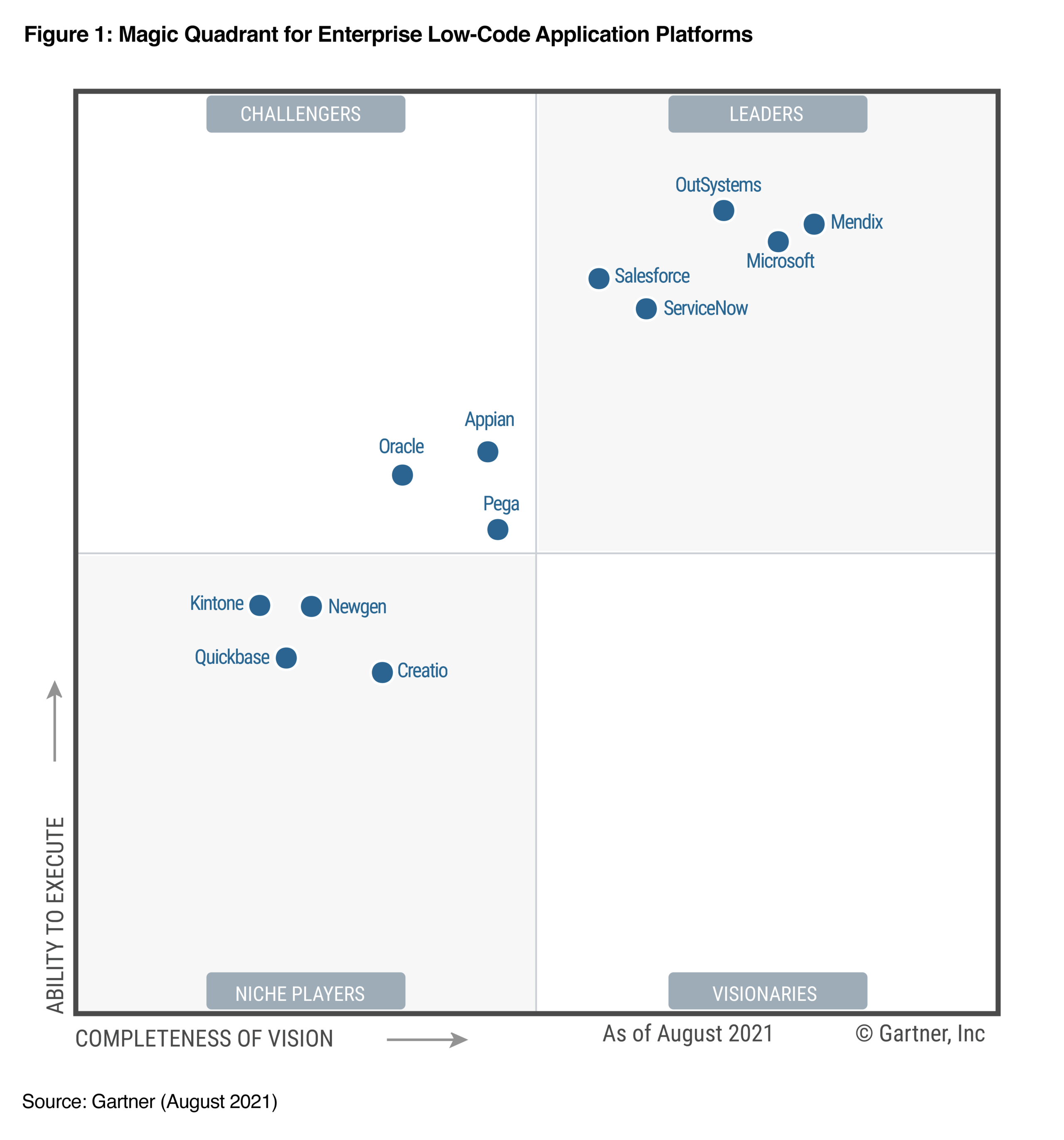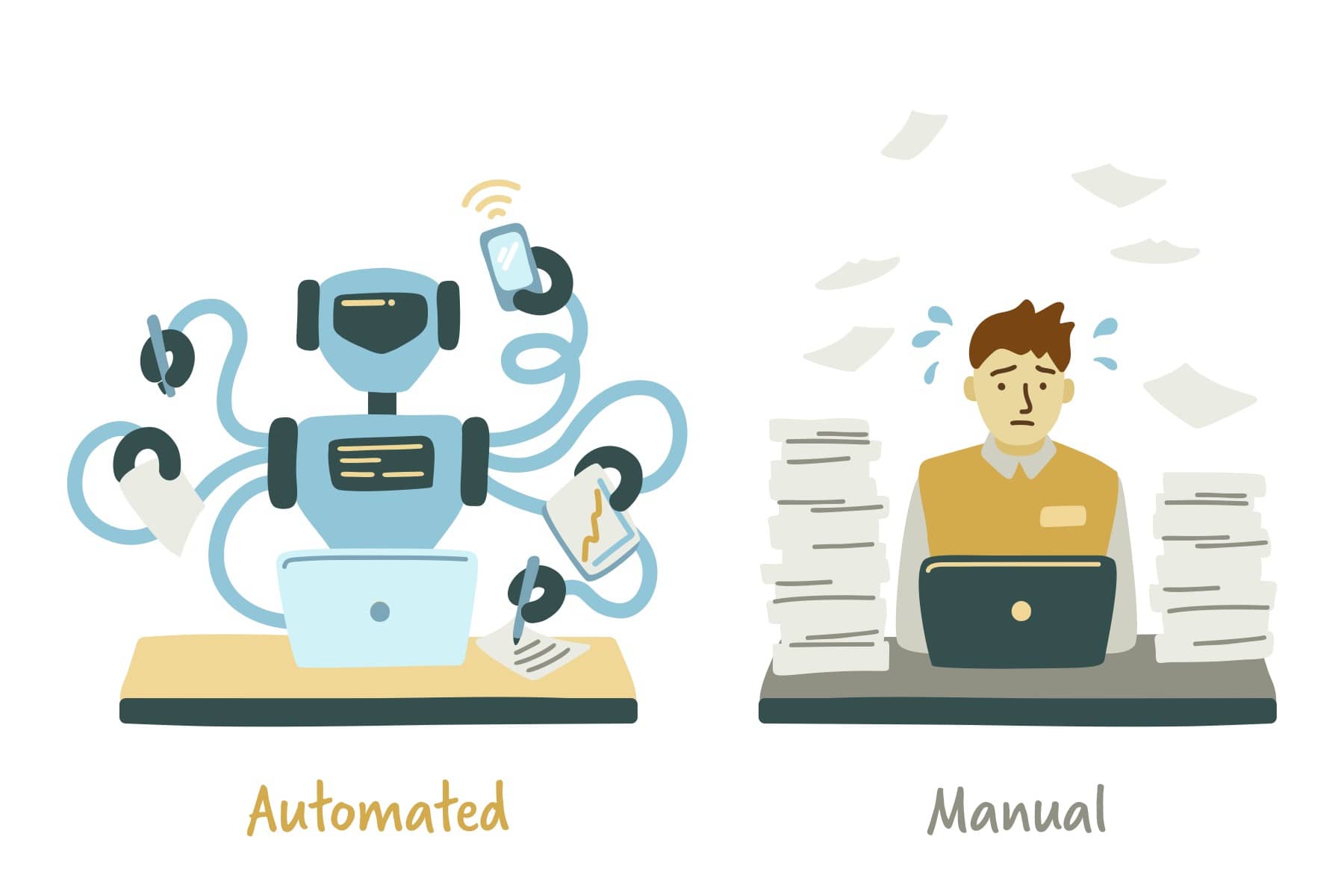Sign Up for Our
Updates
I think we can all agree that the technology industry is obsessed with its acronyms.
Sure, every specialty develops its own jargon and shortcuts to make communications more streamlined, but no industry has mastered the art of cryptic references quite like the technology industry.
Terms like Wi-Fi, RAM, and LAN have been so common that the average user can now casually toss them around in conversation. However, there are some that are a bit more underground and others that simply reflect the rapid evolution of the industry. Gartner's newly coined acronym, LCAP (Low-Code Application Platform), is the latter.
To be honest, when I was asked to write about LCAPs (also known as LCDPs—low-code development platforms), I had no idea what those letters meant. This is also one of those rare occasions when Google isn't all that helpful either as this acronym is somewhat new in the automation world.
So, to help out others like me who want to understand more about low-code development platforms without getting lost in the acronyms of other industries, I spoke to Olly Cogan, the Founder & CEO of Alphalake Ai. Watch the interview below to learn more about this newfound phrase and the implementation of low-code platforms at Alphalake Ai.
For those who don't know, Gartner is an IT consulting firm. Every 1-2 years, Gartner updates its Magic Quadrants, which are visual snapshots that provide a graphical competitive positioning of four types of technology providers in fast-growing markets:
Leaders - execute well against their current vision for changing market rules, but still have ground to cover.
Visionaries - understand where the market is going or have a vision for changing market rules, but do not yet execute well.
Niche Players - focus successfully on a small segment or are unfocused and do not out-innovate or outperform others.
Challengers - execute well today or may dominate a large segment, but do not demonstrate an understanding of market direction.

Now you may be wondering, how is this related to LCAP? This year, the company has added LCAP as its new fast-growing market. To give you a quick recap, LCAP stands for low-code application platform.
Gartner defines a low-code platform as:
"An application platform that supports rapid application development, one-step deployment, execution and management using declarative, high-level programming abstractions, such as model-driven and metadata-based programming languages."
Woah, that's a lot of tech jargon for one sentence! Let's break it all down.
- Low-Code
Low-code means that little to no coding skills are required to create or use an application.
- Application
Application refers to a piece of software that comes pre-installed on your device, or software that you install on the device. Apps are designed to solve issues and optimize processes. Word processors, media players, and accounting software are some familiar examples.
- Platform
A platform can be defined as an infrastructure for multiple applications to be developed upon. Take Google Cloud Platform, for example. It's the platform, while Google Chrome, Gmail, and Google Maps are applications included in this platform.
So then, who uses LCAPs?
The purpose of low-code platforms is to help industry or "citizen" developers build simple applications (of any complexity level) in less time than it would take with traditional coding.
For developers, low-code may help them produce more applications in less time—think weeks rather than months.
For businesses, low-code platforms encourage and allow for app creation without the need for extensive programming skills.
Take a look at this year's Magic Quadrant for Enterprise LCAPs:

So why does Gartner see LCAPs as a fast-growing market?
Well, according to their research, 65% of application development will be low-code by 2024.
Low-code application platforms (LCAPs) are the vanguard of digital transformation, addressing productivity issues such as project backlogs and the lack of skilled resources.
So, if you care about efficiency and the breaking down of barriers to automation, watch the LCAP space, or better yet—get involved.





